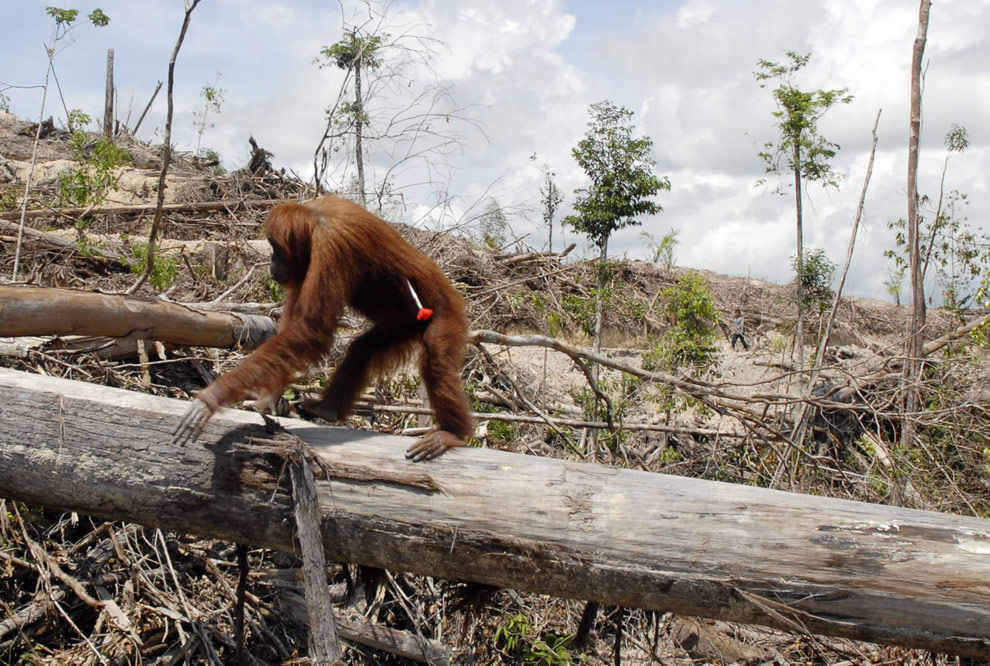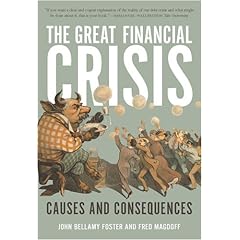review
Paul Le Blanc: Theories of Stalinism

The Marxism of Leon Trotsky
Population control’s dark past

Fatal Misconception:
The struggle to control world population
By Matthew Connelly, Harvard University Press, Cambridge, 2008. 521 pages.
Review by Simon Butler
November 16, 2009 -- A select group of billionaires met in semi-secrecy in May 2009 to find answers to a “nightmarish” concern. Their worst nightmare wasn’t the imminent danger of runaway climate change, the burgeoning levels of hunger worldwide or the spread of weapons of mass destruction.
The nightmare was other people – lots of other people.
The self-styled “Good Group” included Microsoft founder Bill Gates, media mogul Ted Turner, David Rockefeller Jr and financiers George Soros and Warren Buffet.
The London Sunday Times said they discussed a plan to tackle overpopulation, something they considered “a potentially disastrous environmental, social and industrial threat”.
Tom Keneally's `The People's Train': Steaming along the tracks of revolution

The People's Train
By Tom Keneally,
Vintage Books, 2009
Review by Phil Shannon
October 10, 2009 -- When Artem Samsurov first came to Brisbane in 1911, the Russian exile noted that the poor did not eat horse meat like they did in his native country and he wondered whether this did indeed make it true that Australia was a “working man’s paradise”? A diet that was no stranger, however, to rabbit, and bread and lard, suggested otherwise.
Tom Keneally’s latest novel, The People’s Train, follows the political and romantic adventures of Samsurov, a fictional character closely based on Fedor (``Artem'') Sergeyev, a Bolshevik who escaped from exile in Siberia after the crushing of the 1905 revolution in Russia and who was a political activist in Brisbane for six years. [See the Australian Dictionary of Biography's entry for Fedor``Artem'' Sergeyev below this review.]
In regular trouble with the Red-persecuting Queensland police, Sergeyev returned to Russia in 1917 in time to be elected to the central committee of the Bolshevik Party and play a leading role in the Russian Revolution.
Review of `Renegade: The Making of Barack Obama'

Renegade: The Making of Barack Obama
By Richard Wolfe, Virgin Books, London 2009
Review by Jeff Richards
October 14, 2009 – Whatever your views are about Barack Obama, there is no doubt that his campaign for the US presidency was a major milestone in the history of electoral politics in the United States. How did a senatorial rookie who was black, with an alien name and a background in community organising get to the centre of the system of power? It was both a matter of circumstance (the crises and failure of neoconservative project) and the remarkable political skills of Obama and the campaign team led by David Axelrod.
Suffering and struggle in rural China

Will the Boat Sink the Water? The
Life of Chinese Peasants.
By Chen Guidi and Wu Chuntao.
New books reveal Friedrich Engels’ revolutionary life

Engels: A Revolutionary Life, by John Green, Artery
Read an exclusive excerpt from Foster's The Ecological Revolution: Making Peace with the Planet at http://links.org.au/node/1066.
Links readers are also encouraged to purchase a copy of this important new book HERE.
* * *
The Holocaust: `May history attest to us' -- resistance, collaboration and survival

Hitler’s Priests, by Kevin Spicer, Northern Illinois University Press, 2008, 369 pp. US$34.95
Who Will Write Our History? Emanuel Ringelblum, the Warsaw Ghetto, and the Oyneg Shabes Archive, by Samuel D. Kassow, Indiana University Press, 2007, 523 pP., US$34.95
Kasztner’s Train: the True Story of an Unknown Hero of the Holocaust, by Anna Porter, Scribe, 2008, 548 pp., A$32.95
The Complete Maus: A Survivor’s Tale, Art Spiegelman, Pantheon, 1996, 296 pp., US$35.
Review by Barry Healy
July 28, 2009 -- In October 2008 the Catholic Synod of Bishops convened in Rome for a four-day theological discussion. Without warning, on the first day, Pope Benedict XVI suspended discussion and ordered the 200 participants to attend a special commemoration mass for Pius XII, who was the pope between 1939 and 1958.
Australia: Damage on many fronts in false charge of slavery in Western Sahara

A documentary on Western Sahara refugees marks a low point, Kamal Fa
Can carbon trading save our forests?

By Susan Austin
June 26, 2009 – Hobart, Tasmania -- Along with over 400 other people, I turned up to the Wrest Point Casino here to attend the premiere of The Burning Season on June 1. I had the film’s headline -- “As inspiring as The Inconvenient Truth was frightening” in the back of my mind, hoping for a good news story. Instead I sat through a well-orchestrated promo for a carbon trading company, set up by a young Australian-based millionaire whose message was that it is possible to make money and save the environment at the same time.By setting up a carbon trading company called Carbon Conservation, and brokering high-level deals between big banks and provincial Indonesian governors, the film’s “star”, young entrepreneur Dorjee Sun, was able to secure the protection of large areas of forests that may otherwise have been logged or burnt.
Fidel Castro’s declarations of resistance

Review by Alex Miller
The Declarations of Havana,
by Fidel Castro, with an introduction by Tariq Ali,
Verso, 2008, 138 pages
May 22, 2009 -- As Cuba celebrates the 50th anniversary of the revolution that overthrew the US-backed dictator Fulgencio Batista in 1959, it is fitting that three of the most famous documents relating to the struggle against Batista and the early days of the revolution are published together in a single volume. The Declarations of Havana is part of Verso’s new “revolutions” series.
By reading the three documents back-to-back, one is able to trace the development of the Cuban Revolution from its nationalist-democratic beginnings to its socialist conclusion.
On July 26, 1953, a 26-year-old lawyer named Fidel Castro — along with his younger brother Raul — led an armed attack on the Moncada barracks in Santiago de Cuba, hoping to spark an uprising that would remove the hated Batista from power.

